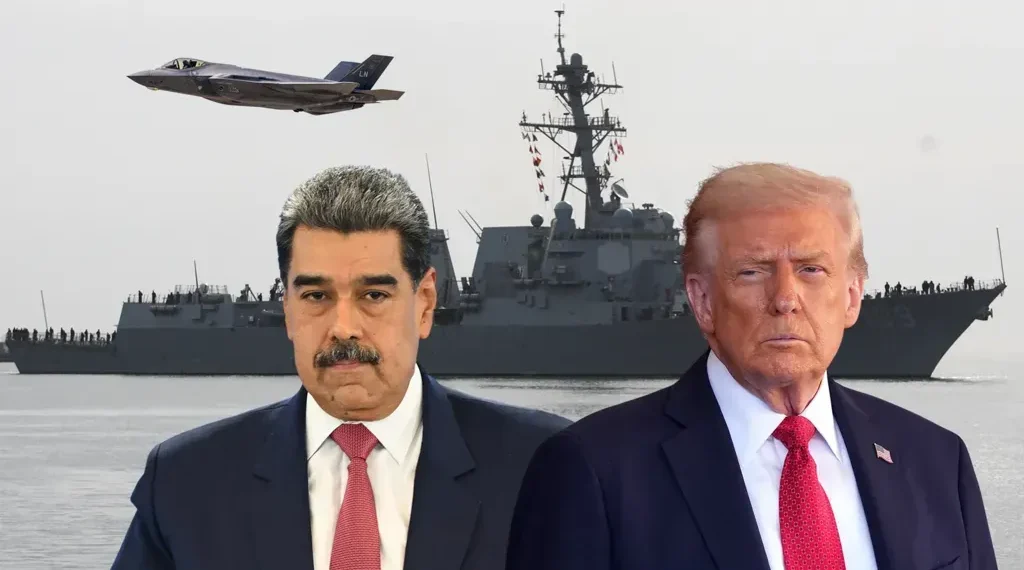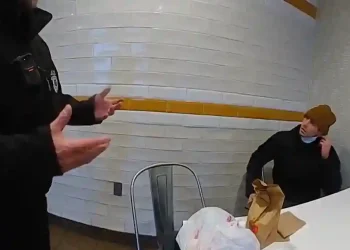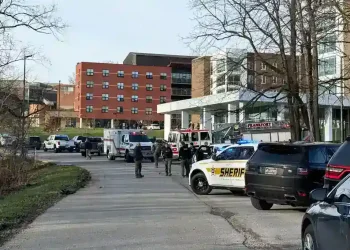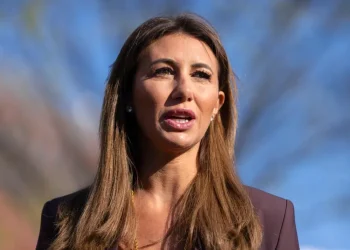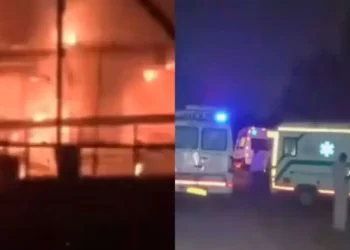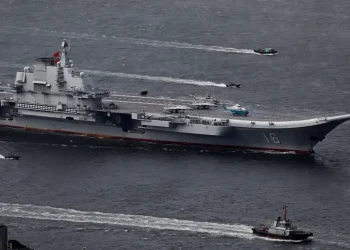Growing Tensions in the Caribbean
The United States has positioned one of its largest military contingents in the Caribbean Sea in decades, deploying warships, long-range bombers, marines, and spy aircraft near Venezuela. The buildup, authorized by former US President Donald Trump, has raised international concern that the operation may go beyond counter-narcotics objectives.
BBC Verify and satellite tracking platforms identified at least ten US military ships in the region as of late October, including guided missile destroyers, amphibious assault ships, and refueling tankers. B-52 bombers have conducted what Washington described as “bomber attack demonstrations” off Venezuela’s coast.
The Trump administration insists the buildup is part of a campaign to curb narcotics trafficking from Venezuela. However, several regional analysts suggest the show of force signals an attempt to pressure or destabilize President Nicolás Maduro’s government.
Show of Strength or Regime Pressure?
Dr. Christopher Sabatini, a senior fellow for Latin America at Chatham House, told BBC News the operation appears intended to “strike fear in the hearts of the Venezuelan military and Maduro’s inner circle.” He described it as an intimidation strategy designed to provoke internal divisions rather than a prelude to invasion.
Although Trump has long criticized “forever wars,” his administration maintained a hard stance toward Maduro, refusing to recognize his presidency after the 2024 election—widely rejected internationally as neither free nor fair.
The United States closed its embassy in Caracas in 2019 during Trump’s first term and has since intensified financial and political sanctions against the Maduro government. Washington has also offered a $50 million reward for information leading to Maduro’s arrest—an incentive designed to encourage defections within his inner circle.
Yet Venezuelan experts say the move is unlikely to succeed. José Ignacio Hernández, a law professor and senior associate at the Center for Strategic and International Studies, said Venezuela’s elite have “little motivation to betray Maduro,” noting that corruption and illicit wealth offer stronger incentives for loyalty.
Economic and Political Leverage
Sanctions have deepened Venezuela’s economic crisis, but the strategy has not succeeded in weakening Maduro’s hold on power. Analysts argue that members of the Venezuelan armed forces—long considered the key to regime stability—may only consider turning against him if guaranteed legal immunity.
Michael Albertus, a political scientist at the University of Chicago, added that authoritarian systems often create deep surveillance and loyalty mechanisms. “Even if the reward was $500 million, it’s unlikely to change the behavior of those close to Maduro,” he said.
A War on Drugs—or Something Else?
The Trump administration maintains that the deployment targets narcotics traffickers. In an October 16 statement, Trump claimed one intercepted vessel was “loaded with fentanyl.” However, fentanyl is primarily produced in Mexico, not Venezuela, raising doubts about the justification.
The US Drug Enforcement Administration’s 2025 report found that 84% of cocaine seized in the US originated in Colombia, not Venezuela. Experts say the Caribbean is not a major trafficking corridor compared to the Pacific.
“This isn’t about drugs,” Dr. Sabatini argued. “It’s about portraying Venezuela as a criminal regime.” The US Justice Department has accused Maduro of leading a narco-terrorism organization—claims the Venezuelan president has repeatedly denied, accusing Washington of using such charges to justify “imperialist aggression.”
Fear Among Venezuelan Fishermen
The US has acknowledged conducting strikes on small boats allegedly involved in narcotics operations, without providing details. The attacks have alarmed local communities, with Venezuelan fishermen in coastal areas reporting fear of being mistaken for traffickers.
Human rights organizations in Latin America have called for transparency, questioning the legality of such strikes under international law.
Expanding US Presence at Sea and in the Air
Satellite imagery and open-source tracking show extensive US military activity around Puerto Rico and near Trinidad and Tobago. Among the vessels identified are the USS Lake Erie, a guided missile cruiser, and the MV Ocean Trader, a converted cargo ship designed for special operations, equipped for drones, helicopters, and small craft.
Military analysts note that such a force exceeds what is typically required for counter-narcotics missions. F-35 fighter jets, B-52 bombers, and MQ-9 Reaper drones have been observed in the region. Reaper drones, known for their roles in Afghanistan and Syria, are capable of both surveillance and precision strikes.
The CIA’s Role and the Risks of Escalation
When asked if the CIA had authorization to “take out” Maduro, Trump declined to give a direct answer, calling the question “ridiculous.” However, he acknowledged approving covert operations in Venezuela, citing “drug-related” concerns.
Ned Price, former CIA senior analyst and ex-State Department adviser, explained that covert operations “can range from information campaigns to direct sabotage or support for opposition movements.”
Analysts warn that any CIA activity in Venezuela could reignite regional mistrust. The agency’s history in Latin America—including Cold War–era coups in Chile and Brazil—remains a source of deep suspicion.
Uncertain Endgame
The scale of the US military presence has led to speculation over the Trump administration’s long-term objectives. Some experts believe it is a calibrated signal to Venezuela’s military elite rather than preparation for an invasion.
“The question,” said Dr. Sabatini, “is how long the US is willing to keep these assets deployed in the Caribbean.”
Whether the buildup aims to coerce Maduro, encourage defections, or maintain regional dominance, its outcome remains uncertain. For now, the operation underscores the fragility of Venezuela’s political stability and the enduring complexity of US-Latin American relations.
This article was rewritten by JournosNews.com based on verified reporting from trusted sources. The content has been independently reviewed, fact-checked, and edited for accuracy, neutrality, tone, and global readability in accordance with Google News and AdSense standards.
All opinions, quotes, or statements from contributors, experts, or sourced organizations do not necessarily reflect the views of JournosNews.com. JournosNews.com maintains full editorial independence from any external funders, sponsors, or organizations.
Stay informed with JournosNews.com — your trusted source for verified global reporting and in-depth analysis. Follow us on Google News, BlueSky, and X for real-time updates.
